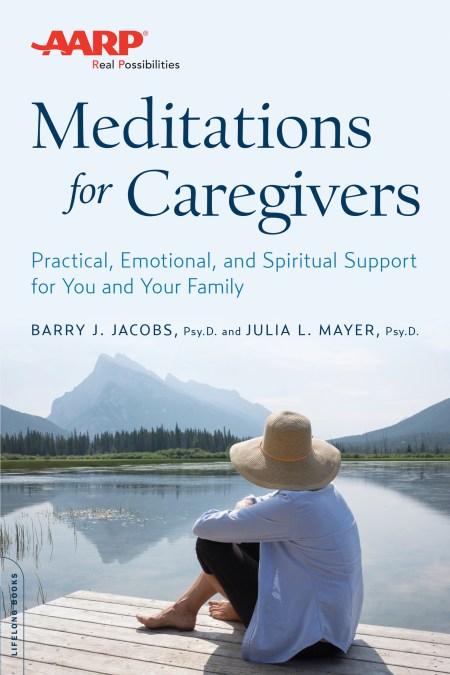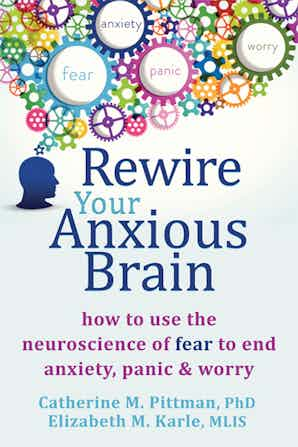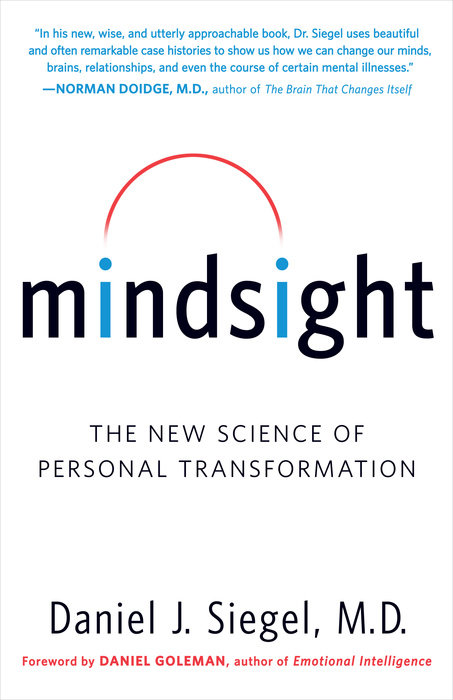YOU MIGHT ALSO LIKE
CLEAR ALL
BY TOPIC
BY TEACHER
BY TYPE
FILTER

TOPIC
- Well-Being (68)
- Communication Skills (65)
- Handling a Loved One’s Illness (51)
- Neurodiversity (42)
- Emotional and Mental Health (41)
- Self-Care (41)
- Intimacy (39)
- Discrimination (37)
- Resilience (34)
- Compassion Fatigue (33)
- Marriage (33)
- Offering Support to Others (31)
- Sexuality (30)
- Stress Management (30)
- Asking for Help (29)
- Parenting (29)
- Body Image (28)
- Adaptability (27)
- Autism (27)
- Burnout (27)
- Fellowship and Community (25)
- Work-Life Balance (25)
- Social Justice (24)
- Belonging (23)
- Dementia (23)
- Empowerment (22)
- Growth Mindset (22)
- Cancer (21)
- Social Presence (21)
- Speaking Your Truth (21)
- Family Dynamics (20)
- Sex (19)
- Athlete Well-Being (18)
- Memoir (18)
- Veteran Well-Being (18)
- ADD/ADHD (17)
- Identity (17)
- Self-Acceptance (17)
- Connection (16)
- Neuroscience (16)
- Anger (15)
- Body Positivity (15)
- Happiness (15)
- Life-Altering Injury (15)
- Productivity (15)
- Social Responsibility (15)
- Young Adult Well-Being (15)
- Acceptance (13)
- Access to Education (13)
- BIPOC Well-Being (13)
- Creative Well-Being (13)
- Divorce and Breakup (13)
- Grit (13)
- Work Challenges (13)
- Activism/Service (12)
- Compassion (12)
- Love (12)
- Managing Energy (12)
- Mindfulness (12)
- Play (12)
- Self-Love (12)
- Authenticity (11)
- Chronic Health Conditions (11)
- Imagination and Creativity (11)
- Letting Go (11)
- Self-Esteem (11)
- Withholding (11)
- Anxiety (10)
- Depression (10)
- Exercise (10)
- Finding Meaning (10)
- Physical Health (10)
- Self-Worth (10)
- Women’s Well-Being (10)
- Conflict Resolution (9)
- Empathy (9)
- Forgiveness (9)
- Meditation (9)
- Positive Psychology (9)
- Self-Development (9)
- Self-Discovery (9)
- Self-Reliance (9)
- Stress (9)
- Awareness (8)
- Honoring Emotion (8)
- LGBTQIA Well-Being (8)
- Living with Illness (8)
- Mind-Body Connection (8)
- Motivation (8)
- Passive-Aggressive Behavior (8)
- Personal Development (8)
- Sleep (8)
- Work Relationships (8)
- Black Well-Being (7)
- Child’s Autism (7)
- Child’s Trauma (7)
- Connection with Nature (7)
- Fear (7)
- Gratitude (7)
- Grief (7)
- Guilt (7)
- Handling a Child’s Illness (7)
- Inspiration (7)
- LGBTQIA Sexuality (7)
- Problem Solving (7)
- Search for Purpose (7)
- Self-Compassion (7)
- Self-Healing (7)
- Self-Reflection Practices (7)
- Toxic Relationships (7)
- Confidence (6)
- Dysfunctional Childhood (6)
- Emotional Labor (6)
- Intention (6)
- LGBTQIA Relationships (6)
- Negative Self-Talk (6)
- Neuroplasticity (6)
- Perception (6)
- Positive Thinking (6)
- Self-Actualization (6)
- Self-Expression (6)
- Setting Limits and Boundaries (6)
- Trauma Healing (6)
- Trust (6)
- Child’s Emotional Growth (5)
- Collaboration (5)
- Community Healing (5)
- Courage (5)
- Death or Loss of a Loved One (5)
- Diet and Nutrition (5)
- Disconnection (5)
- Fatigue (5)
- Female Friendship (5)
- Freedom (5)
- Goal Setting (5)
- Habits of Mind (5)
- Healthy Eating (5)
- Joy (5)
- Mindfulness Practices (5)
- Motherhood (5)
- Shame (5)
- Spiritual Growth (5)
- Vulnerability (5)
- Accepting Love (4)
- Addiction (4)
- Aging (4)
- Child’s Challenging Behavior (4)
- Decision Making (4)
- Digital Life (4)
- Emotional Intelligence (EQ) (4)
- Endurance (4)
- Generosity (4)
- Hope (4)
- Human Potential (4)
- Integrative Medicine (4)
- Leadership (4)
- Life Challenges (4)
- Loneliness (4)
- New Relationships (4)
- Relationship with Time (4)
- Sexual Health (4)
- Social Anxiety (4)
- Transgender Well-Being (4)
- Trauma (4)
- Autoimmune Disease (3)
- Buddhism (3)
- Children’s Well-Being (3)
- Climate Change (3)
- Forest Bathing (3)
- Foster Parenting (3)
- Habit Formation (3)
- Highly Sensitive People (3)
- Indigenous Well-Being (3)
- Interdependence (3)
- Love Languages (3)
- Memory (3)
- Men’s Well-Being (3)
- Mental Health Challenges (3)
- Military to Civilian Re-entry (3)
- Narcissism (3)
- Neuropsychology (3)
- Nonviolence (3)
- Optimism (3)
- Patience (3)
- Rest (3)
- Retirement (3)
- Self-Pressure (3)
- Self-Realization (3)
- Suicide (3)
- Transformation (3)
- Transitions (3)
- Unconscious Bias (3)
- Values (3)
- Weight Concerns (3)
- Anger Management (2)
- Attachment Theory (2)
- Brain Health (2)
- Building Culture (2)
- Challenges with Teens (2)
- Chronic Fatigue (2)
- Chronic Pain (2)
- Codependency (2)
- Compassion Meditation (2)
- Criticism and Rejection (2)
- Cross-Cultural Dynamics (2)
- Death and Dying (2)
- Death-Positive Movement (2)
- Dharma (2)
- Eating Disorders (2)
- Ego (2)
- Entrepreneurship (2)
- Family Acceptance (2)
- Female Empowerment (2)
- Focus (2)
- Gender Discrimination (2)
- Gender Identity (2)
- Global Challenges (2)
- Healing Approaches (2)
- Hospice (2)
- Imposter Syndrome (2)
- Infidelity (2)
- Inner Peace (2)
- Inner Strengths (2)
- Kindness (2)
- Learning Styles (2)
- Loss of Partner/Spouse (2)
- Lovingkindness Meditation (2)
- Male Friendship (2)
- Masculine/Feminine Dynamics (2)
- Midlife Crisis (2)
- Mindfulness Meditation (2)
- Nonbinary Well-Being (2)
- Post-Traumatic Growth (2)
- Presence (2)
- Psychology (2)
- PTSD (2)
- Race and Gender (2)
- Racism (2)
- Self-Control (2)
- Self-Limiting Beliefs (2)
- Self-Reckoning (2)
- Sexual Assault or Abuse (2)
- Social Psychology (2)
- Spiritual Awakening (2)
- Spiritual Healing (2)
- Spiritual Life (2)
- Spirituality and Health (2)
- Talk Therapy (2)
- War (2)
- Work Ethic (2)
- AAPI Well-Being (1)
- Academic Struggles (1)
- AIDS (1)
- Awe (1)
- Biofeedback (1)
- Boundary Confusion (1)
- Breathwork (1)
- Buddha Nature (1)
- Building Character (1)
- Child’s ADD/ADHD (1)
- Collective Trauma (1)
- Competition (1)
- Curiosity (1)
- Dark Night of the Soul (1)
- Death or Loss of a Parent (1)
- Deciding to Have Children (1)
- Despair (1)
- Domestic Abuse (1)
- Ego Transcendence (1)
- Embodiment (1)
- Enneagram (1)
- Failure (1)
- Feminism (1)
- Gender Challenges (1)
- Guided Meditation (1)
- Hero’s Journey (1)
- Holism (1)
- Homophobia (1)
- Household Labor (1)
- Identity Shifts (1)
- Inner Life (1)
- Integrity (1)
- Jealousy/Envy (1)
- Journaling (1)
- Jungian Analysis (1)
- Kids and Sports (1)
- Latinx Well-Being (1)
- LGBTQIA Parents (1)
- Longevity (1)
- Lovingkindness (1)
- Mentoring (1)
- Misophonia (1)
- Moral Philosophy (1)
- Near-Death Experience (1)
- OCD (1)
- Oneness (1)
- Philosophical Approaches (1)
- Poetry (1)
- Positive Self-Talk (1)
- Poverty/Economic Inequality (1)
- Psychology and Spirituality (1)
- Racial Discrimination (1)
- Racial Healing (1)
- Racial Justice (1)
- Raising Daughters (1)
- Raising Nonbinary Children (1)
- Regret (1)
- Relationship with Money (1)
- Ritual (1)
- Self-Mastery (1)
- Shadow (1)
- Social Media Addiction (1)
- Somatic Practices (1)
- Soul Mission (1)
- Spiritual Crisis (1)
- Spiritual Development (1)
- Spiritual Direction (1)
- Storytelling (1)
- Teacher Burnout (1)
- The Divine (1)
- The Feldenkrais Method (1)
- Tibetan Buddhism (1)
- Trauma-Informed Therapy (1)
- Unfulfilled Career (1)
- Wake-Up Calls (1)
- Yoga (1)
- Youth Activism (1)
- Zen Buddhism (1)
FILTER

TEACHER
- Gary Chapman (4)
- John Gottman (4)
- Lori Gottlieb (4)
- Andrew Solomon (3)
- Elaine Aron (3)
- Elizabeth Lesser (3)
- Gay Hendricks (3)
- Harville Hendrix (3)
- Helen LaKelly Hunt (3)
- Joan Halifax (3)
- Ramani Durvasula (3)
- Rick Hanson (3)
- Stan Tatkin (3)
- Andrew Weil (2)
- Brendon Burchard (2)
- Donna Jackson Nakazawa (2)
- Ethan Nichtern (2)
- Jane E. Brody (2)
- John Bradshaw (2)
- Kathlyn Hendricks (2)
- Melanie Joy (2)
- Oprah Winfrey (2)
- Rich Roll (2)
- Russell Brand (2)
- Shakti Gawain (2)
- Sharon Salzberg (2)
- Sharon Strand Ellison (2)
- Shefali Tsabary (2)
- Stephen Cope (2)
- Tara Brach (2)
- Terri Cole (2)
- Thich Nhat Hanh (2)
- Adam Grant (1)
- Amma (1)
- Amy Morin (1)
- Andy Puddicombe (1)
- Anne Lamott (1)
- Arianna Huffington (1)
- Aristotle (1)
- Brené Brown (1)
- Carol Dweck (1)
- Chan Khong (1)
- Connie Zweig (1)
- Dan Buettner (1)
- Daniel Amen (1)
- Daniel Goleman (1)
- Daniel J. Siegel (1)
- Deepak Chopra (1)
- Dilip Jeste (1)
- don Miguel Ruiz (1)
- Dorothy Firman (1)
- Edward Hallowell (1)
- Elizabeth Gilbert (1)
- Frank Ostaseski (1)
- Gabor Maté (1)
- Gary Zukav (1)
- Geneen Roth (1)
- Iyanla Vanzant (1)
- Jack Canfield (1)
- Jack Kornfield (1)
- James Baraz (1)
- Jeff Foster (1)
- Jennifer Peepas (1)
- Joan Borysenko (1)
- John O’Donohue (1)
- John Welwood (1)
- Karen Casey (1)
- Kate Johnson (1)
- Kathy Freston (1)
- Kelly McGonigal (1)
- Kim Eng (1)
- Light Watkins (1)
- Linda Graham (1)
- Louise Hay (1)
- Maria Sirois (1)
- Marie Forleo (1)
- Mark Victor Hansen (1)
- Mark Wolynn (1)
- Marshall Rosenberg (1)
- Martin Seligman (1)
- Maya Angelou (1)
- Megan Devine (1)
- Mel Robbins (1)
- Moshé Feldenkrais (1)
- Ram Dass (1)
- Rebecca Solnit (1)
- Rumi (1)
- Saeed Jones (1)
- Sally Kempton (1)
- SARK (1)
- Sister Jenna (1)
- Stephen Covey (1)
- Terry Real (1)
- Thubten Chodron (1)
- Tony Gaskins Jr. (1)
- Yongey Mingyur Rinpoche (1)
- Zainab Salbi (1)










